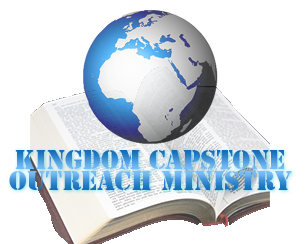You are here
PROPHETIC INTERCESSION (4)
“Then Moses pleaded with the Lord his God and said, “Lord, why does Your wrath burn hot against Your own people...” – Exodus 32: 10a
Moses topped an array of Bible characters who operated in PROPHETIC INTERCESSION: “Then Moses pleaded with the Lord his God and said, “Lord, why does Your wrath burn hot against Your own people who You have brought out of the land of Egypt with great power and with a mighty hand?” (Exo.32:10). When the rebellious children of Israel made the golden calf, the Lord was prepared to destroy the nation, and he told Moses of his intentions. But Moses interceded, and the people were not destroyed. That’s Prophetic Intercession at work!
The prophet as an intercessor is an all-important role that has often been ignored or left unknown. In Genesis, Abraham was called a prophet, and his story depicts a very significant role of prophets: God said of Abraham, “he is a prophet, and he will pray for you and you shall live” (Gen. 20:7). It was Abraham’s role as a prophet to intercede for King Abimelech so that Abimelech would live, not to say to him “Thus says the Lord, you shall live.” The Old Testament contains numerous other revealing examples of the prophetic role of intercession.
Elijah is known to have prayed for rain on the land of Israel (I Kg. 18:41-42); both Elijah (I Kg. 17:17-22) and Elisha (II Kg. 4:24-34) prayed for a dead child who was restored to life. Samuel, also a prophet, interceded for the people, for instance in I Sam. 7:5. Every one of the major prophets is seen to have had the role of intercessory prayer. Isaiah prayed, “But we are all like an unclean thing...” (Isa.64:6) “Do not be furious, O Lord, nor remember iniquity forever; indeed, please look – we all are Your people!” (Isa.64:9).
Daniel’s interceded on behalf of Israel (Dan. 9:4-19). His was an interesting prayer both for its eloquence and its content. He confessed the sins of his people, and pleaded for mercy. It is important that Daniel made this prayer just after receiving the interpretation of a vision (Dan. 8:15-27). Just like Abraham in Gen. 20 and Moses in Ex. 32, the prophet responded to divine revelation with intercessory prayer.
Examples of prophetic intercession are also found in the minor prophets. Amos cried out to God: “O Lord God, forgive, I pray! Oh, that Jacob may stand, for he is small!” (Amos 7:2). “So the Lord relented concerning this. “It shall not be,” said the Lord” (Amos 7:3). Habakkuk’s book comprises entirely of his prayer to the Lord and the Lord’s answer to his prayer. Jeremiah and Ezekiel had unique intercession experiences. Every Old Testament prophet who carried the words of God to men, was an intercessor in the sense of being a mediator or an arbitrator. Since speaking God’s words to men is what defines a prophet, then the prophet is by definition an intercessor in this one sense of the word.
Adetokunbo O. Ilesanmi (Meditations)
- Log in to post comments
Latest Tweets
No tweets to display now.
Our Vision
The vision of KCOM is that:
"the earth shall be filled with the knowledge of the Glory of the Lord as the waters cover the seas" (Habakkuk 2:14).
"But we all, with open face beholding as in a glass the Glory of the Lord, are changed into the same image from glory to glory even as by the Spirit of the Lord" (2 Corinthians 3:18).
Copyright © 2013–2026 Kingdom Capstone Outreach Ministry. | Designed by ZoeWox Technologies
